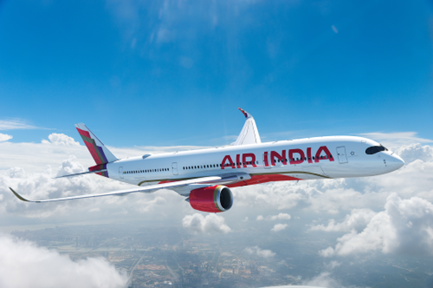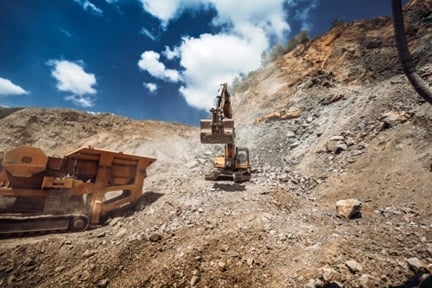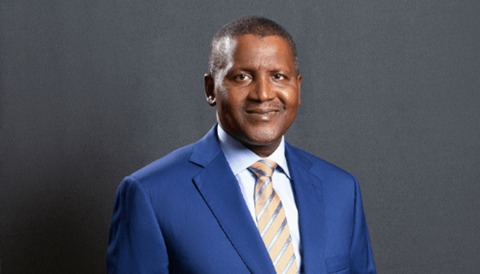African start-ups raised almost US$5bn in 2022 despite global slump
The slowdown of the second half of the year could not wipe out gains made in the first half of the year
By Max Cuvellier

Before looking more closely at the key 2022 trends in terms of start-up funding in Africa, it may be worth touching upon the year before. 2021 had certainly ended up on a high. The second half of the year had seen a record US$3.1 bn raised by start-ups on the continent, and most indicators seemed to be green, both regionally and globally. The performance of the first quarter of 2022 was in line with expectations as Q1 broke the record of the most funding raised in a quarter in Africa, with a total of US$1.9 bn. In Q2, when it became apparent that the context was worsening in other parts of the world, numbers were still up in Africa. US$1.3 bn were raised that quarter, admittedly less than in Q1, but in line with the trend experienced in previous years. Activity slowed down in Q3 with US$900 m raised, and negative YoY quarterly growth for the time in years, especially given the very strong numbers in the second half of 2021. The flagging continued in Q4 (US$750 m) with a second quarter of negative YoY quarterly growth.
Overall, the year ended with approximately US$4.8 bn of funding raised by start-ups in Africa*, a +5% YoY progression. However, the US$220 m YoY increase felt low compared to a few months earlier – in June 2022 – when the ecosystem was US$1.9 bn ahead of the amount raised in June 2021. The funding was raised through more than a thousand US$100k+ deals across the continent, which represents a +11% YoY growth in the number of deals in this range. There were less ‘mega deals’ (transactions over US$100 m) in 2022 compared to 2021 (9 vs. 12). More than a thousand investors – excluding angel investors – participated in at least one US$100k+ deal on the continent in 2022, a progression of +15% year on year. For the second consecutive year, Launch Africa Ventures remained the most active investor on the continent, with more than one deal a week on average.
As in previous years, the funding was not equally distributed across the continent. Four markets – Nigeria, Kenya, Egypt, and South Africa, a.k.a. the ‘Big Four’ – concentrated 75% of the funding in 2022, a very high proportion, yet lower than in 2021 (82%). While funding in Nigeria (US$1.2b) and South Africa (US$555m) decreased in 2022 compared to 2021 (-29% and -48% YoY respectively), Egypt (US$823m) and particularly Kenya (US$1.1b) saw significant growth in funding attracted (+37% and +155% YoY respectively). In total, 8 countries (vs. 5 in 2021) claimed more than US$100 m in start-up funding: the Big Four, Ghana, Algeria, Tunisia and Senegal. 17 countries (+2 vs. 2021) claimed more than US$10 m. However, a total of 26 countries (+2) – nearly half – did not record a single US$100k+ deal in the whole of 2022.

If we aggregate at regional level, West Africa ranks first – as in 2021 – with US$1.8 bn raised, i.e. 37% of all the African total. While it remains comfortably ahead of its runners-up, 2022 marked a decline in both absolute funding raised (-12% YoY) and relative share of continental funding (-7 percentage points). Eastern Africa, which held the fourth place in 2021, ranked second in 2022 with 26% of all funding (+13 percentage points compared to 2021) thanks to very strong growth (from around US$600m in 2021 to US$1.2bn in 2022) fuelled mostly by Kenya. Northern Africa came third as it crossed the threshold of US$1 bn raised in a calendar year for the first time. The US$1.1 bn raised in 2022 (vs. around US$700m in 2021) represented a +62% YoY growth, which made its share of continental funding grow 8 percentage points, from 15% to 23%. Southern Africa – where 95% of the funding was raised in South Africa alone – suffered the biggest losses with a -44% YoY decrease in funding, from US$1.1b down to approximately US$600m. Its share therefore dropped from 23% to 12%. Central Africa continued to record minimal funding activity (around US$50m in 2022) and represented barely over 1% of the total.
From a sectoral point of view, Fintech continued to lead in terms of amount of funding raised with US$1.8 bn in 2022, a -28% YoY decrease compared to 2021 (US$2.5b). The sector still claimed the largest number of mega deals last year with four out of nine (Flutterwave, MNT-Halan, Interswitch and MFS Africa). The second sector to have attracted the most funding was Energy (US$874m, more than doubling YoY), boosted in particular by Sun King’s US$260m Series D.[1] Next came Logistics & Transport, which thanks to Yassir’s Series B (see below), even managed to outperform Fintech in Q4. Followed Retail, Telecom, Media & Entertainment, Agriculture & Food, and Deeptech. The two other sectors that suffered losses – beyond Fintech – were Healtchare (-41% YoY) and Education & Jobs (-69% YoY).
Finally, if we focus on the last quarter of 2022, while Q4 was much quieter than the earlier part of the year, two transactions in particular are worth highlighting.
Firstly, I would single out Yassir’s US$150 m Series B[2] announced in November. It is the only US$100m+ ‘mega deal’ recorded on the continent in Q4, and it illustrates a trend amongst investors who seem more and more ready to go off the beaten tracks to find deals – large and small – beyond the Big Four and Fintech. Indeed, Yassir is a super app born in Algeria on the back of a ride-hailing and last-mile delivery service. After all, the year had started in January with InstaDeep – a deeptech start-up from neighbouring Tunisia – announcing its US$100 m Series B round.[3] In early 2023, InstaDeep announced that it was getting acquired by BioNTech[4] – who had participated in the Series B – for approximately US$448 m in cash with the possibility for shareholders to receive additional performance-based future milestone payments of up to approximately US$247.4 m”. This is to date the largest exit for an African start-up.
The second deal I wanted to comment on this quarter is also singular in three different ways: It is set in Cameroon in Central Africa, a region as we have seen above that is critically underrepresented in terms of funding on the continent; It is one of the very deals involving crypto that has a real focus on Africa: And finally, it involves a female co-founded and female-led start-up, a kind which still attract a very small portion of the investments in Africa – and beyond. Indeed in 2022, start-ups with a female CEO only raised 4% of all the funding deployed in Africa, even less than in 2021 (6%). For these three reasons – which shouldn’t take away any of the merit of the team -, the US$8 m Series A round of Cameroonian crypto and savings platform Ejara[5] – with a view to “democratize access to investment and savings products across the region, using blockchain technology” – deserves attention.
Find out more about the African start-up ecosystem at Africa: The Big Deal, a project by Max Cuvellier and Maxime Bayen.
* It is worth mentioning that while we have gathered data on US$100k+ deals from both public information and transactions share in confidence by investors that amounted to a total of US$4.85 bn as of December 31st, 2022, we can safely assume that the total number exceeded US$5 bn. Indeed, end-of-year tallies are underestimated due to a delay in investors sharing deals with us, and to some deals becoming known at a later stage).














/enri-thumbnails/careeropportunities1f0caf1c-a12d-479c-be7c-3c04e085c617.tmb-mega-menu.jpg?Culture=en&sfvrsn=d7261e3b_1)

/cradle-thumbnails/research-capabilities1516d0ba63aa44f0b4ee77a8c05263b2.tmb-mega-menu.jpg?Culture=en&sfvrsn=1bc94f8_1)







